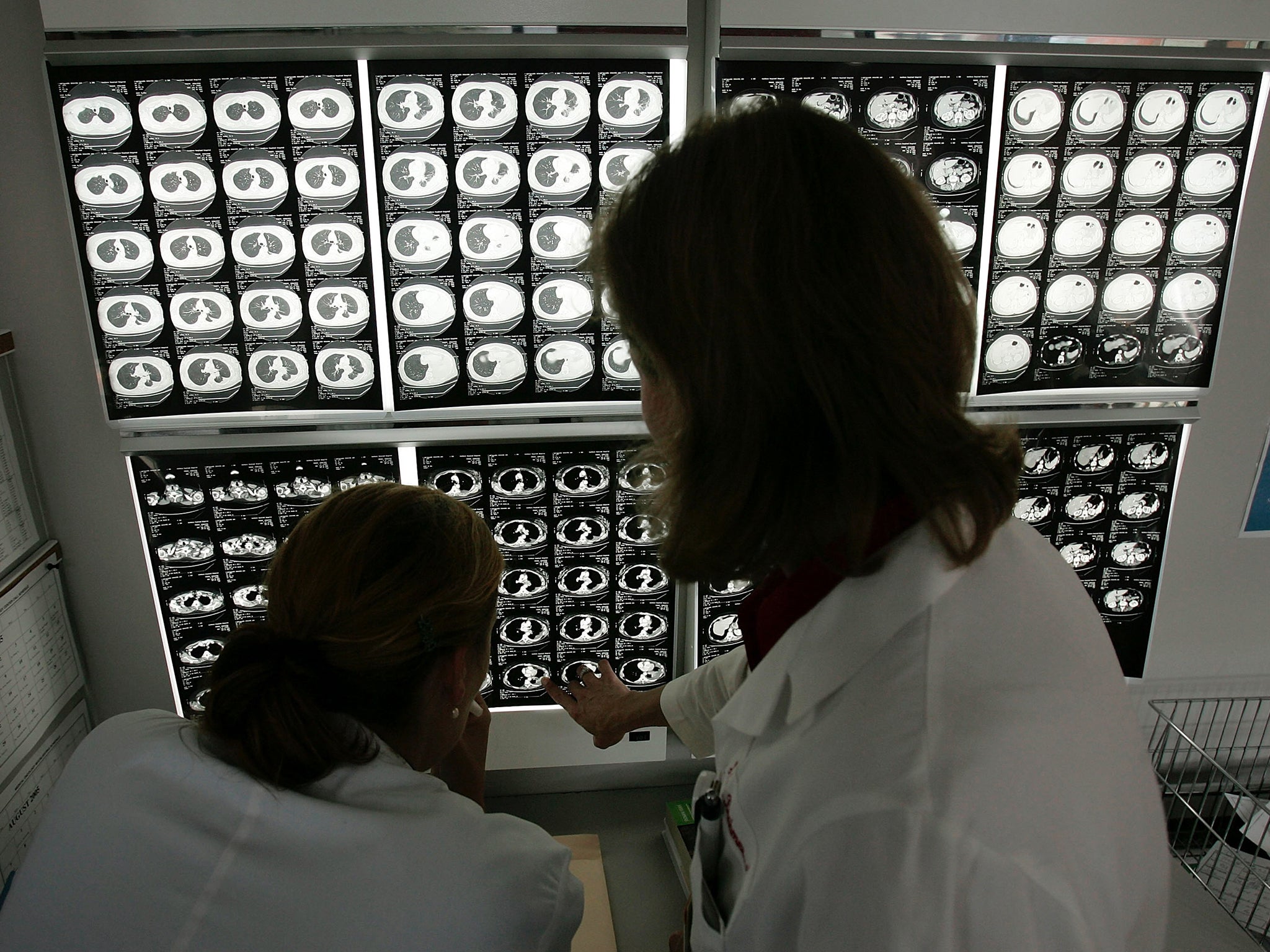Scientists begin pioneering cancer vaccine which attacks tumours of individual patients
The prototype vaccine trial is designed to stimulate the T-cells of the immune system to recognise and destroy a patient’s tumour cells

Your support helps us to tell the story
From reproductive rights to climate change to Big Tech, The Independent is on the ground when the story is developing. Whether it's investigating the financials of Elon Musk's pro-Trump PAC or producing our latest documentary, 'The A Word', which shines a light on the American women fighting for reproductive rights, we know how important it is to parse out the facts from the messaging.
At such a critical moment in US history, we need reporters on the ground. Your donation allows us to keep sending journalists to speak to both sides of the story.
The Independent is trusted by Americans across the entire political spectrum. And unlike many other quality news outlets, we choose not to lock Americans out of our reporting and analysis with paywalls. We believe quality journalism should be available to everyone, paid for by those who can afford it.
Your support makes all the difference.The first step towards a cancer vaccine designed to attack the tumours of individual patients has been taken in a pioneering experiment aimed at developing a completely new approach to cancer treatment.
Conventional cancer therapy relies on surgery, chemotherapy or radiotherapy but the new approach is aimed at stimulating the body’s own immune defences to attacking invading cancer cells using the body’s natural “killer” T-cells.
Doctors in the United States have published the early results of a prototype vaccine trial that is designed to stimulate the T-cells of the immune system to recognise and destroy a patient’s tumour cells. Three cancer patients received the experimental treatment and all are doing well, the researchers said.
The vaccine is made by studying the type of proteins present on the tumour cells of each patient, which differ from one individual to another. Personalised vaccines were infused into three patients with advanced melanoma skin cancer in order to study the number and diversity of the killer T-cells produced by their immune systems.
The scientists found that in each patient there was a strong production of T-cells designed to target each patient’s melanoma cells with no apparent side-effects. One patient is still in complete remission, while the other two are “stable”, although it was too early to discover whether there was an improvement in symptoms due to the vaccines.
“The three patients are fine, they are all well with stable disease….Melanoma likes to grow and spread and it hasn’t done that in these patients, but we don’t not whether it will,” said Gerald Linette, an oncologist at Washington University in St Louis who led the trial.
“The tumour antigens we inserted into the vaccines provoked a broad response among the immune system’s killer T-cells responsible for destroying tumours. Our results are preliminary, but we think the vaccines have therapeutic potential based on the breadth and remarkable diversity of the T-cell response,” Dr Linette said.
It is the first time that scientists have sequenced the complete DNA of a patient’s tumour and used this to identify seven proteins on the cancer cells that are unique to each patient, which was then used to design personalised vaccines to target each patient’s own tumour cells.
The researchers hope to start phase 1 clinical trials within the next 12 months. It is hoped that personalised cancer vaccines could also be developed against other kinds of tumours, such as lung, bladder and colorectal cancers, which have high mutation rates, the scientists said.
Join our commenting forum
Join thought-provoking conversations, follow other Independent readers and see their replies
Comments